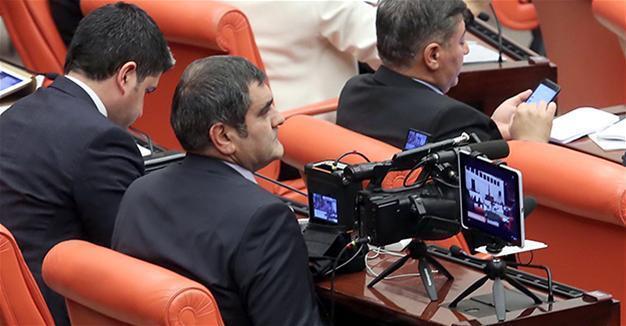State-run TV seeks royalties from main opposition MP who aired TRT footage
ANKARA

DHA photo
State-run TRT has demanded royalties from a main opposition lawmaker for footage of a speech that was purchased by the MP from TRT and then broadcast on his own private YouTube channel.
TRT asked for compensation from Republican People’s Party (CHP) Istanbul lawmaker Ali Şeker after the latter broadcast footage of a speech by a deceased lawmaker Kamer Genç about U.S.-based Islamic preacher Fethullah Gülen.
“We received a copyright demand from TRT for Şeker TV. We will struggle against this,” Şeker said, referring to the name of his YouTube channel.
“We purchased the video of a speech of warnings regarding Fethullah Gülen by Kamer Genç by paying the TRT money. I uploaded the video we purchased to my YouTube channel, Şeker TV. Over 300,000 people watched that video. Upon the TRT’s demand, we are considering awarding them for being the best [Fethullahist Terrorist Organization] FETÖ bootlicker,” he said.
Declaring that they wanted people to watch proper footage, Şeker said it was a shame that TRT was demanding royalties.
“We are buying that footage from TRT. We air it on social media, and we are doing what TRT should do,” he said.
Şeker also criticized the TRT for not airing recent constitutional amendment debates in parliament.
TRT did not air the charter talks in parliament, which included speeches and votes on the 18-article constitutional amendment package. A number of opposition deputies criticized TRT for its decision, prompting Şeker to begin airing the talks from YouTube in a first in parliament’s history.
Şeker claimed that TRT “didn’t want to show the debates to the public in order to keep them a secret.”
After the aforementioned voting, the parliament submitted the 18 articles to President Recep Tayyip Erdoğan for his approval.
Turkey will hold a referendum in mid-April to decide whether to change the government system into an executive presidency with vastly enhanced powers for the president or to protect the current parliamentary system.
